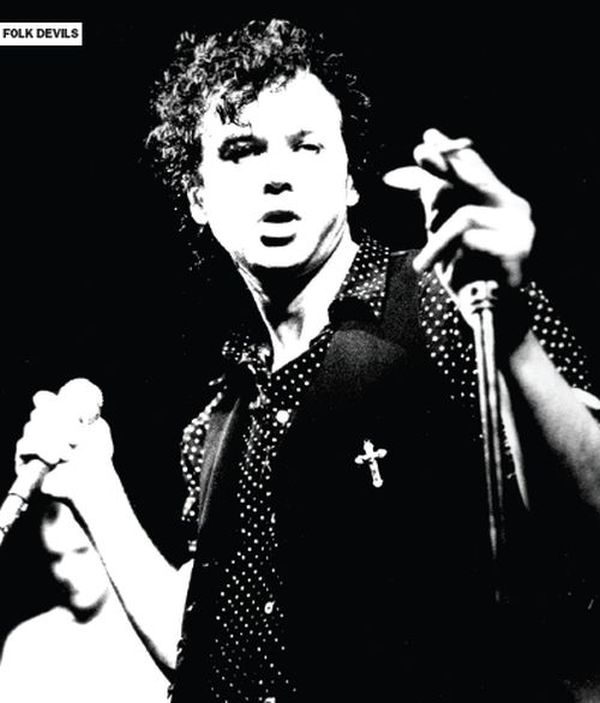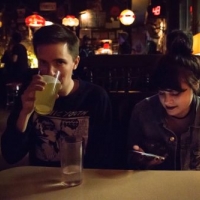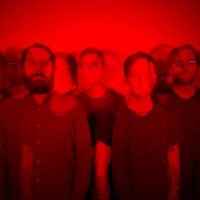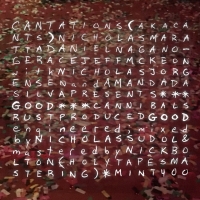Cherry Red Records released Silhouettes & Statues: A Gothic Revolution – 1978 – 1986 on June 30th, an ambitious and comprehensive 5 disc box set that covers an essential musical era that was a direct response to social, political, and economic dystopia of the United Kingdom in the ‘70s and ‘80s.
Silhouettes & Statues provides a comprehensive view of the bands, large and small, that captured the spirit of gothic music. Mark Whiteley of one such band, Folk Devils, has graciously answered some questions about his place in the gothic music realm and what he’s currently up to.
Hello Mark! Thank you so much for chatting with me about your influential music and involvement with the Silhouette & Statues compilation album, which covers the revolutionary years of UK gothic music from 1978 to 1986. To begin, what does the term ‘gothic’ mean to you?
My personal take on the term “gothic”, as it relates to music, is very much informed by my emotional response to Joy Division’s album sleeves, especially Closer. Dark and effective, heartbreakingly beautiful. Now I’m an old bastard, but I can still recall the emotional response to the visual and the sound. The two worked together perfectly, without effort, with flawless elegance. That’s what, on reflection, the term ‘gothic’ means to me – an emotive, beautifully deranged, self-consciously subversive interzone between what’s heard and what’s seen.
During the time period that this compilation draws from, were you known as a gothic band? If so, what did that mean to you at the time?
I don’t think we looked quite right to have been regarded as “goth” in the way, say, The Sisters of Mercy were. We shared an office with them for a time and our side of the room contained less hair-products and more chemical insanity.
In your opinion, what is the overarching importance of the gothic music genre?
I remember hearing Siouxsie and the Banshees first album, The Scream, and feeling, there and then, I was being invited into a world that offered a little more sophistication and danger than punk, for example. The fusion of aesthetics, iconography, and music was of course not new to rock ‘n’ roll. Goth just took it to a new level. I mean FFS, Siousxie and the Banshees, The Birthday Party, Joy Division, The Cure, Killing Joke – all bands that would have resisted the label – exemplify the importance of gothic music as, at the time, an emerging genre that embraced its roots and dyed ‘em black. Fuckin’ brilliant.
How has gothic music/culture impacted your life? How has the passage of time, with its accumulation of experiences, shaped your outlook?
Being part of Folk Devils, and having been a life-long fan of bands defined as gothic (Killing Joke, for example), has fundamentally shaped both my ontological and epistemological frames of reference as I explore and interpret the world around me. Music has been the soundtrack to all moods and all weathers.
I guess time has mellowed me a little, helped me develop a modicum of common sense, and proved the durability of the human body. Where once music may have informed a nihilistic type of passive suicidal ideation, I now actually love my life, love music more than ever, and connect with fellow human beings in a more balanced way. Music has been a fundamental part of that journey and I still wear black: It’s effective and affective and I like the way my colleagues at work mock me for my music taste (Theirs is unspeakably appalling!!).
What were some of the main themes that you addressed on your records?
The Folk Devils’ material that we’ve re-released over the past couple of years seems to feel as relevant now, thematically, as it did back at the time. The backdrop of 1983/1984 in the UK was mass unemployment, social and economic turmoil, and a fascist-leaning Tory government. There’s no mass unemployment now ‘cos everyone’s on a zero-hours slave contract. All else remains the same, worse in fact!
So, certainly for me, Folk Devils is a sonic and lyrical sweat-drenched vivid dream that is a direct and visceral response to despair, anger, and the need to howl. We were never a political band, just commentators and it seems we’re needed again. Hence, we are now working on new material, although, much like the Catholic Church, we work in decades rather than days. There should be new shit out in a couple of years or so.
Why did you choose to include “Beautiful Monster” on this compilation?
Because it’s a great song and representative of the time. It’s a song that chose itself. There was no discussion needed.
Please recount a (wild, good, bad) highlight from your music career.
Getting drunk with Andrew Eldritch and Al, Folk Devils’ drummer at the time, in a room that had been a Gestapo torture chamber with Al insisting on calling Andrew, Dave all night. “So Dave, do you like bein’ in this fuckin’ band of your then?” Eldrtich looks up and says “Do you think I’d wear this stupid fuckin’ hat if I didn’t like bein’ in this fuckin’ band." T’was a moment of hilarity.
Does ending up sleeping at a Dutch bus-stop or being left stranded by the band in Achen, or the night on a roof of an army watchtower in East Berlin count? I’ll give the band one thing; for an outfit without a lawyer, we managed to stay out of a lot of trouble!!
What bands/artists, goth or not, are you into at the moment?
At present, I’m listening to Black Uhuru, Steel Pulse, Killing Joke (Pylon album on repeat), revisiting The Gun Club, loving The Hallows, but top of my pops right now are a Southend bunch called BAIT, the most exciting new band I’ve seen or heard for a decade. Dark, explosive, beautiful, and original. I insist you check them out.
“Beautiful Monster” was originally released in 1984 as a single on Ganges Records.




